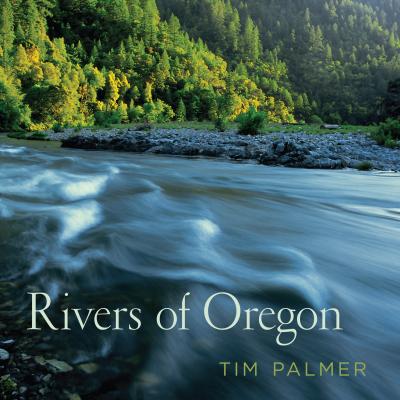A most commanding muse, nature continually captivates scientists and citizens alike. Perhaps few understand the call better than author and photographer Tim Palmer, who has spent decades traversing the Pacific Northwest by both foot and water. A prodigious writer and celebrated paddler, Palmer joins us today to share a piece of the beauty he found while researching his latest work, Field Guide to Oregon Rivers.
-------------------------
The temperature hovered at 112 degrees. Ann and I had tied up our raft late in the afternoon and crammed ourselves among ancient rocks under the limited shade of alder shrubs, only ten feet from the prodigious flow of the Snake River. We looked across at Idaho on the other side.
Hot! In that precious shade we hid from the frying-pan heat of direct sunlight on blackened volcanic rock while we waited for the shadow of westward cliffs to creep our way with the relief that comes only in summer's evening hours.
There, in Hells Canyon, the temperature lived up to the name, but the scenery was far more heavenly than hellish: craggy outcrops stairstepping up to golden grassy benches, then farther to ponderosa pines pointing higher toward ridgelines green with groves of Douglas-firs, and then onward to heights of the Wallowa Mountains, which soared skyward to an alpine paradise, out-of-sight beyond the canyon rim.
There at the eastern limits of our state was the last waterway I would be floating in a quest to complete research for my Field Guide to Oregon Rivers.
It couldn't have been more different from the cool, rain-soaked, intimate rivers of the Pacific Coast, where I had started the book, and where my wife, Ann and I normally live. In between lie the rivers of the Willamette basin, the Cascade Mountains, and Columbia Gorge, along with dryland streams radiating from isolated ranges and down to the Columbia, Klamath River, and Great Basin desert.
The Snake is the largest tributary to the massive Columbia and the second-largest river in Oregon (though the Willamette is the largest flowing wholly within the state). The river's powerful flow streamed past at 17,000 cubic feet per second, a lot like the Colorado River in the Grand Canyon. The upper half of the original Hells Canyon was dammed, and its salmon migrations blocked. But thanks to courageous citizen activism, the lower half remains a free-flowing river where thundering rapids have long enticed adventurers in rafts to join the flow for one of the classic wild river journeys of the West. Here below the dams, a few of our beloved Chinook salmon still spawn in the main stem of this great waterway.
I felt privileged to be there, and to be learning about the place first-hand, but even more fortunate for my opportunity to systematically explore the rivers of Oregon over the course of the past several years—experience that I added to several entire decades of intermittent canoeing, rafting, and hiking along small streams and large from the Willamette to Winchuck, Umpqua to Imnaha.
Rivers are the essence of Oregon, and so to know the state one must know its streams. They are the lifelines that provide for our fisheries, our wildlife, our farms, towns, and cities. The rivers underpin entire ecosystems that make life possible. The rivers' health is essential to our own health. Yet the perils of development and mismanagement challenge us in striving for a future that will serve not just people today, but for all the generations to come. In launching my Field Guide project, I reasoned that knowing about these waters is fundamental to meeting that challenge.
Ann and I relaxed in the heat of the day, refreshed by a cool dip in the current, and I took immense satisfaction in completing my tour of Oregon rivers along that impressive artery at our eastern border.
Now, all I had to do was write the book.
-------------------------
Tim Palmer is the author of 22 titles, including the recently published Field Guide to Oregon Rivers. He lives with his wife, Ann, on the Pacific coast, where he combines his love for nature with the power of words to promote conservation. An avid paddler, Tim was recognized for his efforts by conservation organization American Rivers with a Lifetime Achievement Award. Learn more about Tim and his work by purchasing a copy of Field Guide to Oregon Rivers today or by visiting his website at www.timpalmer.org.
Related Titles

Wild and Scenic Rivers
The rivers of America flow from mountains, forests, and grasslands with astonishing beauty, essential to all life. Many of the best of these streams have...

Rivers of Oregon
“Rivers are the essence of Oregon,” writes award-winning author and photographer Tim Palmer. In over 140 brilliant photos and evocative, informative text, Rivers of Oregon...

Field Guide to Oregon Rivers
Despite Oregon’s watery reputation, the state has lacked a field guide for its many celebrated rivers and streams—until now. Preeminent river conservationist, photographer, and author...
